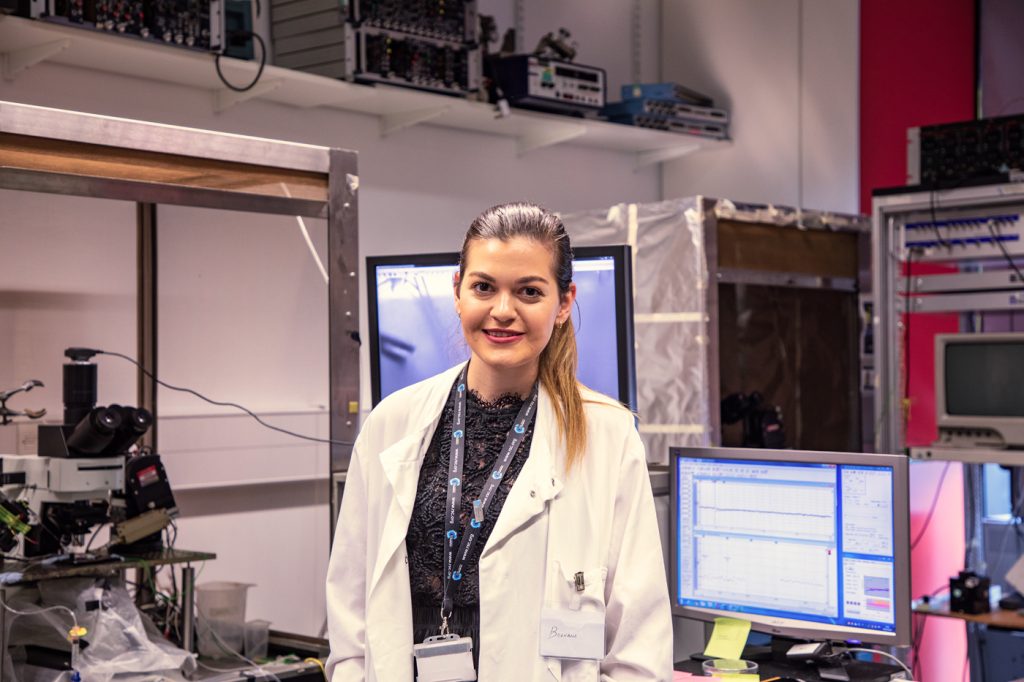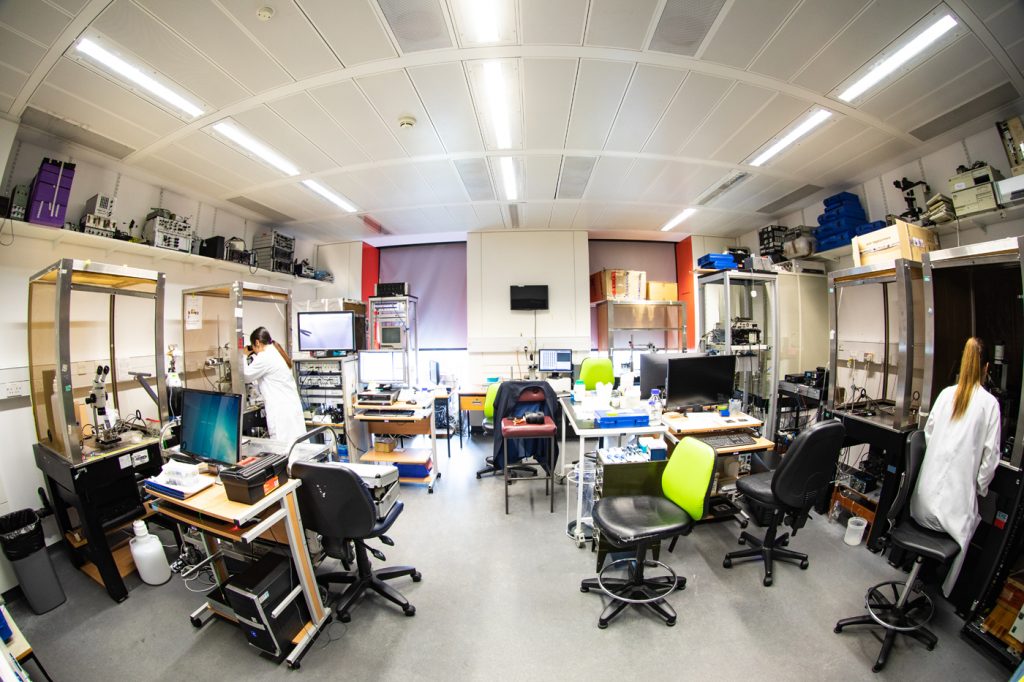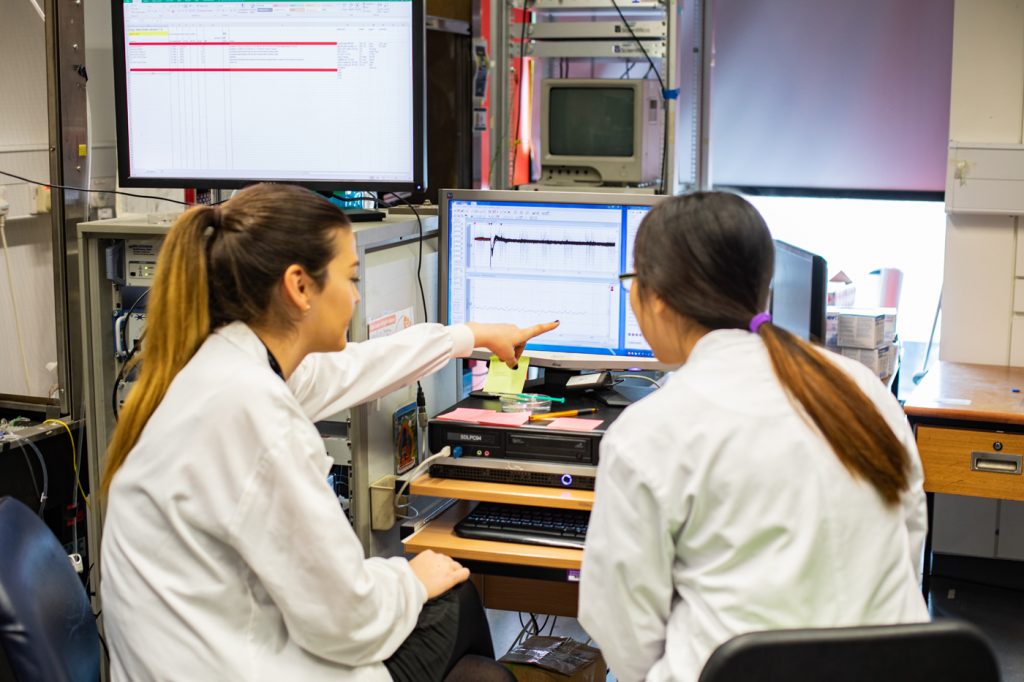Bozhana Stoyanova spent her summer doing Alzheimer’s research in Dr Francesco Tamagnini’s lab with a Physiological Society undergraduate studentship. Here she tells us about getting to grips with running experiments and investigating a possible new use for Viagra in restoring visual memory.

The summer before my final year of university, I was looking to gain experience that would be different from any Pharmacy internship I had done before. As my interest lies in the field of drug research, I was eager to explore research opportunities that would allow me to put my passion for science into practice.
With the help of Dr Silvia Amadesi, my academic tutor, I was introduced to Dr Francesco Tamagnini whose research on dementia and Alzheimer’s disease I found fascinating. After visiting the electrophysiology laboratory where most of his work takes place, I was convinced that was the research area to which I wanted to dedicate my summer. We applied for funding through the Physiological Society Summer Studentship scheme and were successful.
Restoring visual recognition?
My eight-week project focused on investigating the effects of phosphodiesterase inhibitors [a class of drugs used to treat heart conditions and erectile dysfunction] and cannabidiol [a compound derived from cannabis] on signalling between brain cells within a part of the brain where visual recognition memories are made.
People with Alzheimer’s disease can have problems recognising objects, faces or colours. This is because something goes wrong with the mechanism underlying how this type of memory is formed. We wanted to investigate whether cannabidiol and sildenafil – which is more commonly known as Viagra – could restore that mechanism by increasing levels of a substance called nitric oxide, which is known to play an important role in the encoding of visual recognition memory.

Real world research
During the first three years of the Pharmacy degree at Reading, we have a number of opportunities to carry out experimental work as part of laboratory practical classes. These experiences provided me with the foundation required to step into the research world.
But when I started my summer project, I quickly realised that teaching laboratories are very different to research ones, so I had to adapt my approach. A big part of this involved learning how to run my experiment independently, familiarising myself with all the equipment and ensuring the organisation of the laboratory – scheduling deliveries, booking rooms and placing orders.
This all seemed very overwhelming at first, but I was surrounded by a team who eased me into it. With each day, I saw my confidence growing and in turn my work flowed more easily.
About a month into the project, I felt capable of doing the experiment completely independently for the first time and this was also the day I recorded my first set of experimental data.
Problem solving
But it was not all plain sailing. There were days where I would follow the protocols step-by-step, but the experiment still would not work. This taught me how to troubleshoot and find the cause of the problem by integrating my own research with the input of others.
By the end of the two months I spent in the laboratory, I had collected a big enough preliminary data set to build the foundations of a bigger project looking for new treatments for dementia. Results from my experiments indicated that sildenafil might potentially be used to restore the visual recognition memory mechanism.

Inspiring research
I am now continuing my involvement with research at the University of Bologna in Rimini, Italy where I work on characterising the inhibitors of some key enzymes contributing to the development of Alzheimer’s disease.
These unique opportunities would not have been possible without the university’s commitment to investing into students and developing their potential.
Bozhana Stoyanova is in the final year of a four-year Pharmacy degree at the University of Reading and is currently undertaking lab research at the University of Bologna for her dissertation.
Dr Francesco Tamagnini is a neurophysiologist in the University of Reading’s School of Pharmacy. His research investigates how electrical activity in the brain is altered in dementia and is mainly carried out on mice, genetically modified to resemble the pathological and behavioural signs of Alzheimer’s disease.
